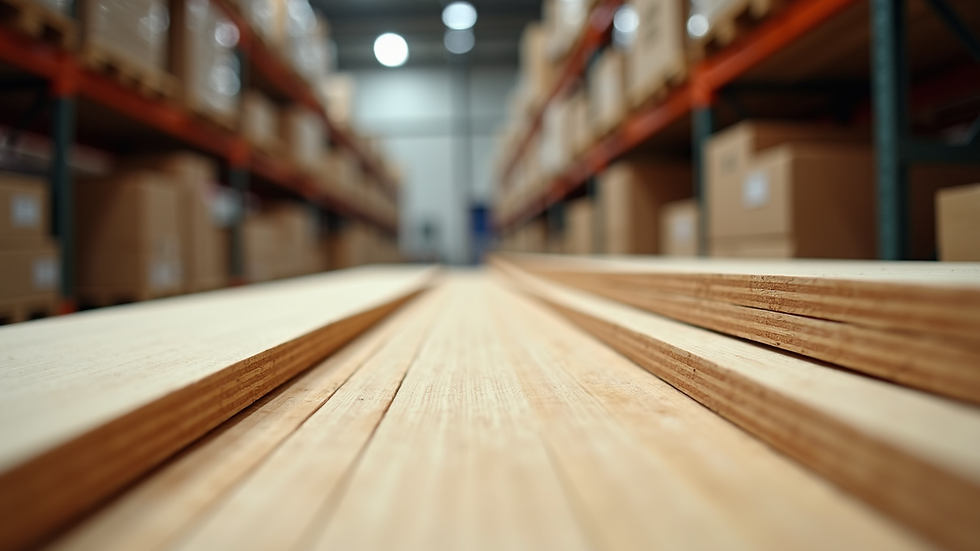Why Balsa Wood Glued Blocks Are a Quiet Hero in the Marine Industry (Ochroma Pyramidale)
- Henri Laprade
- Jun 11, 2025
- 2 min read
Updated: Dec 9, 2025
When you think of marine engineering, materials like fiberglass, carbon fiber, and aluminum probably come to mind. But tucked behind the scenes is a humble material that plays a surprisingly critical role: balsa wood (Ochroma Pyramidale), specifically in the form of glued blocks.
What Makes Balsa Special?
Balsa (Ochroma pyramidale) is one of the lightest woods in the world, yet it offers an impressive strength-to-weight ratio. When bonded into blocks using marine-grade adhesives, it becomes a versatile core material that’s both strong and stable. These blocks are engineered to resist moisture, making them ideal for harsh marine environments.
When processed as Balsa S4S (Surfaced Four Sides), the wood achieves a premium finish with smooth surfaces and precise dimensions. This professional machining ensures uniformity, reduces preparation time, and delivers a ready-to-use product for demanding applications such as marine, aerospace, and wind energy projects.
Core Applications in Boat Building
One of the most common uses of balsa wood blocks is as a core material in sandwich construction. This technique involves layering balsa between fiberglass skins to create panels that are lightweight yet incredibly stiff. You’ll find this construction method in:
Hull structures of sailboats and powerboats
Decks and superstructures
Bulkheads and interior partitions
Using Balsa S4S in these applications guarantees dimensional accuracy, smooth surfaces, and consistent density—critical factors for high-performance marine structures.

The result? Boats that are lighter, faster, and more fuel-efficient.
Buoyancy and Safety
Thanks to its low density, balsa contributes to buoyancy. It’s often used in components that need to stay afloat, such as:
Floatation panels
Rescue equipment
Life rafts
In emergency situations, every ounce of buoyancy matters—and balsa delivers.
Noise and Vibration Dampening
Marine environments are noisy. Engines, waves, and wind all contribute to a constant hum. Balsa Wood blocks (Ochroma Pyramidale) help reduce this noise by acting as a natural sound dampener. They’re used in:
Engine compartments
Cabin walls
Flooring systems
This makes for a quieter, more comfortable ride—especially on luxury yachts.

Repair and Retrofitting
Balsa blocks Ochroma Pyramidale are also a go-to material for repairing damaged fiberglass structures. They’re easy to shape and bond, making them ideal for patching up hulls or replacing old core materials. Many boatyards keep balsa blocks on hand for this very reason.
A Sustainable Choice
Another reason balsa is gaining popularity? It’s renewable. Grown primarily in Central and South America, balsa trees mature quickly, making them a sustainable option compared to synthetic cores.





Comments